
It's early April, just days before the Great American Eclipse, when the Moon will slip in between us and our star, giving excited astronomers a rare, but brief, chance to see its corona - the 'crown' that forms its outer atmosphere.
If the two spacecraft can be taught to perform their dance correctly, the scientists in Belgium will be able to create their own, artificial eclipses and observe the corona whenever they want. Why? Because doing so could help us solve one of the biggest mysteries in solar physics: what's happening inside the Sun's fainter coronal ring.
There's a lot we don't know about the corona - why it's over a million degrees hotter than the Sun's surface, for instance. Or why space.weather (the radiation, particles, magnetic fields and matter ejected by the Sun that can interact with Earth's atmosphere and disrupt our electrical systems) originates from it. We don't know because the Sun's light outshines the corona, making it impossible to see, unless something blocks the Sun's light. Something like the Moon during an eclipse... or a pair of spacecraft performing a carefully choreographed dance.
The spacecraft in question are of part the European Space Agency's (ESA's) Proba-3 mission and have to be taught to dance with each other because they'll be too far from Earth to control with the precision required to produce artificial eclipses. The mission's full name, Project for OnBoard Autonomy, gives a clue (albeit an unwieldy one) as to the level of involvement its controllers on Earth expect to have.
This story is from the September 2024 edition of BBC Science Focus.
Start your 7-day Magzter GOLD free trial to access thousands of curated premium stories, and 9,000+ magazines and newspapers.
Already a subscriber ? Sign In
This story is from the September 2024 edition of BBC Science Focus.
Start your 7-day Magzter GOLD free trial to access thousands of curated premium stories, and 9,000+ magazines and newspapers.
Already a subscriber? Sign In
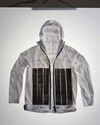
NOW YOU SEE ME, NOW YOU DON'T
Scientists around the world are working on ways to hide us from sight. But how close are we to developing tech that could make us invisible?

UNCORKED POTENTIAL
How much good can ditching drink for a month really do? Answer: a whole lot. In fact, science shows even short-term abstinence could unlock a cocktail of lasting benefits

Scientists discover when humans and dogs became friends
The relationship spans thousands of years, but experts might have pinpointed the first connection
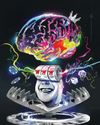
Why it's so hard to kick a gambling addiction
We now know that gambling can be as addictive as drugs, but there are factors that can make it even harder to quit
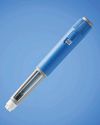
How much could Ozempic change our world?
The weight-loss drug has made headlines and broken sales records, but what does it mean for our future?
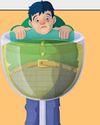
WHY DOES DRINKING ALCOHOL MAKE IT SO MUCH HARDER TO LOSE WEIGHT?
While enjoying the occasional glass of wine or pint of beer may seem harmless, regular or excessive alcohol consumption can significantly hinder your weight-loss journey for a few reasons:

Why do so many New Year's resolutions fail?
Establishing positive new habits is hard at any time of year. But there are ways to stop your attempts ending in failure
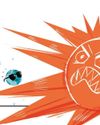
'Extreme' solar radiation storm could hit Earth
Sun-like stars may have tantrums far more frequently than we thought

HOW CAN I BANISH THE JANUARY BLUES?
Dark mornings, long chilly evenings and short days; many people find January tough.

Neutrinos are getting in the way of dark matter detection
These troublesome particles are difficult to detect, but they're starting to show up in places where they're not wanted